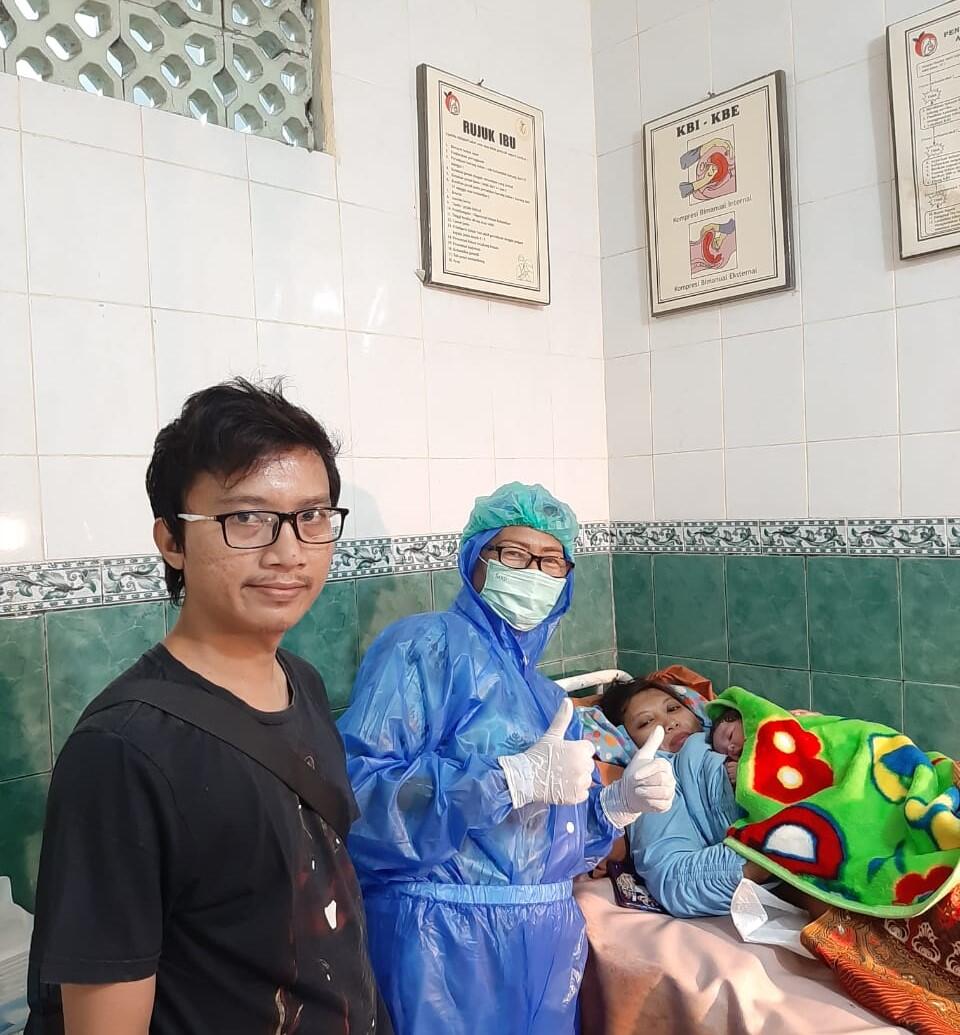Jakarta, 4 May 2020
Women do not stop giving birth even during the pandemic situation and under large-scale social restrictions. 2015-2045 Indonesia's population projections estimated that the total of births in 2020 is 4.432.300. It is equivalent to 12,312 women of reproductive age (15 - 49 years old) give birth every day in Indonesia (BAPPENAS, BPS, UNFPA, 2018). These pregnant mothers, along with women of reproductive age, potentially have less access to antenatal and postnatal care and safe delivery under prolonged large-scale social restriction, which are critical to prevent maternal death. To save the lives of those women and their newborn, UNFPA is urgently working with the Government of Indonesia to ensure maternal health services remain accessible to pregnant, delivering, and post-partum women amid COVID-19 pandemic.
As of May 3rd, 2020, more than 11,150 cases of COVID-19 have been confirmed in the country (BNPB). 60% of the cases have been identified in Java Island, yet the cases have spread across the country and there is no unaffected province.
Data on COVID-19 in pregnancy and specific vulnerability of the pregnant mothers are limited, but the global evidence showed no substantial risk of severe disease in late pregnancy or substantial risk to the newborn. Specific precautions for pregnant mothers remain the same as for the general population, including taking routine preventative actions to avoid infection through diligent hand-washing, maintain physical distancing, and covering sneezes and coughs. (Specific guidance for healthcare workers can be found in UNFPA’s COVID-19 Technical Brief for Maternity Services and COVID-19 Technical Brief for Antenatal Care Services).
However, under-resourced health systems can potentially impact the availability and quality of acute care services. There have been a considerable number of healthcare workers tested positive for COVID-19 in the country and some healthcare workers who were working solely on maternity services could potentially be mobilized for COVID-19 response. Lack of personal protective equipment (PPE), sanitation, and a safe and respectful working environment is impacting the wellbeing and threatening the lives of healthcare workers as well.
“As a midwife, even during the COVID-19 pandemic, I need to continue providing regular maternal health and family planning services. However, until recently, due to the shortage of PPE, I had to perform my duty with inappropriate personal protective equipment," said Midwife Rohana of West Jakarta (in the picture).
Ms. Anjali Sen, UNFPA Representative to Indonesia, emphasized the importance of continuity of maternity services as well as the protection of midwives and healthcare workers. “UNFPA strongly believes that maternity services should continue to be prioritized as an essential core health service. Moreover, midwives and all other health care workers providing maternal and newborn care -- whether based in health facilities or within the community-- are essential healthcare workers and must be protected and prioritized to continue providing care to childbearing women and their babies.”
For the continuation of safe and effective maternal health and family planning services, UNFPA has been providing technical support to the Indonesian Midwives Association (IBI) and protecting maternity care providers through provision PPEs for midwives. Furthermore, UNFPA plans to conduct a rapid assessment of COVID-19 implication on reproductive health services.
UNFPA stands with the affected communities, particularly the most vulnerable women and girls, whose protection and health needs must be at the centre of response efforts. We are working closely with the Government of Indonesia, all UN agencies, non-government institutions and academia as well as other development/ humanitarian partners to respond to the epidemic.
Megumi Uchino, Humanitarian Programme Analyst, UNFPA Indonesia


